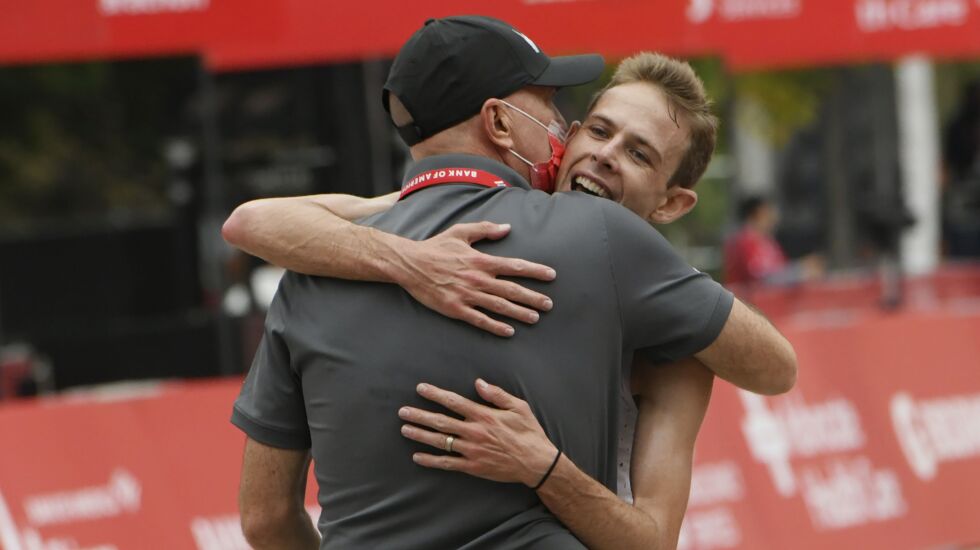
A lot has changed for the Chicago Marathon since the first race on Sept. 25, 1977.
“The first was 5,000 people, and it cost $5,” said George Mueller, who has competed in all 44 marathons and plans to run on Sunday. “Now it’s 47,000, and it’s over $200, so the change has been enormous.
“The number of people of color and women has just increased greatly. It’s fabulous as far as the composition of it.”
The kickoff at McCormick Place on Oct. 5 marks the beginning of the 45th annual Chicago Marathon weekend. Marathon runners worldwide convened to visit the Abbott Health & Fitness Expo, hear opening remarks from event representatives, and receive their marathon packets.
At the beginning of his speech, executive race director Carey Pinkowski asked the runners to shout out where they were from. Countries like South Africa, Germany, Canada and Spain were yelled back to Pinkwoski. It’s a form of validation that the marathon has generated buzz as a quality event.
“It’s an illustration of what a great and welcoming city this is and how people are coming here because they’ve heard great things about it,” Pinkowski said.
Participants can travel through the various neighborhoods throughout Chicago over the 26.2-mile endurance run. They’ll have the opportunity to run in the Lake View area and catch a glimpse of Greektown and Chinatown.
“The Chicago Marathon and the city have been working together obviously for 45 years, said Glenn Eden, board chair for Choose Chicago, an organization dedicated to promoting Chicago as an event destination.
“There’s nothing more that represents the soul of Chicago than the Chicago Marathon because it runs through some of our most critical and beautiful and iconic neighborhoods throughout the city. This is a unique marathon that people love because they can run and see the city.
According to an independent study from the University of Illinois, the 2022 Chicago Marathon generated $386 million for the city’s economy. It was the first time the marathon had generated that much revenue since before the start of the COVID-19 pandemic.
“That is the lore of Chicago, not only being a great place to run a marathon, but a world-class city to come to visit and stay a few days afterward, Eden said.
“It also brought in a third of its participants from other countries. We know visitors from other countries stay longer, and guess what they do … spend more money. That’s a positive thing, and so I think it’s impressive when you look at the overall economic impact.”
Eden completed this race twice from 2009-10. He understands the elation that comes with completing this task. Eden, a Omega Psi Phi Black fraternity member, compared the feeling of completing the Chicago Marathon to crossing over when joining a fraternity.
“There’s a togetherness to just see everybody out here for one goal, whether it’s their first or their last one; it’s such a personal accomplishment,” Eden said.
One-third of the runners participating are from different countries and on Sunday, the millionth runner will cross the finish line in Grant Park. The more than 47,000 people registered will have a shared experience that bonds them together.
“It’s a celebration of individual achievement, accomplishment and humanity, which is what it’s all about,” Pinkowski said. “We have people from all shapes and sizes of all abilities that are going to become a part of this unique community and test themselves in a way that they may have never tested themselves before.”







